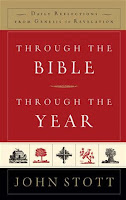
Boasting: Part Two
3:21-31
What is the appropriate response to make as Americans on
Veterans Day? Is it seemly to brag about
our nationality – as if we deserved the freedoms that were purchased by
others? What’s the place of boasting in
community created and sustained by grace?
In the first part of the chapter Paul argues for the
culpability of all people – Jew and Gentile – before God. No one keeps God’s law. If people are to be rightly related to God
and one another there will have to be another way of doing so. Paul makes this case for a very important
reason. Just as he addressed the
inimical effects of judgment (pretending others are worse than we are) in our
community he warns of an equal and opposite danger. Boasting (pretending we are better than
others) will likewise divide and destroy the new family that God has
created. Verses 1-20 demonstrate that we are all
guilty of breaking God’s law; even Jews who have been entrusted with law (v.2)
are not anymore faithful than our Gentiles.
However, God remains faithful to his covenant with Abraham
(v.4). Through his son Jesus, God finds
a faithful representative of Israel
to complete the human side of the covenant.
It is Jesus’ radical faithfulness to God (v22), even to the point of a
sacrificial death that becomes the basis for us being put right. It is also another reason, when properly
understood, that there is no room for boasting in the church (v27). In a community created by the sacrifice of
another where is there room for boasting?
Just as God had called forth Abraham to undo the problem of
Adam, God now has put forth Jesus, his Son, to finish the work started by
Abraham to restore the glory of God to humans (v23). The ancient covenant, marked by the blood of
bulls and goats (Lev. 16:14-15),
reaches its climax in the death of Jesus.
How does this death complete what was started so long ago? How is the faithlessness of Jew and Gentile recompensed
by Jesus’ ultimate act of faithfulness?
First, God finds the guilty “justified” through an alien
righteousness. The man Jesus represents
all of us on the cross. Jesus has
suffered the effects of our disobedience to God. The alienation of sin was conquered through
an act of atonement. We are now part of
the covenant people of God through Jesus’ faithfulness.
Second, the “sacrifice of atonement” refers to the mercy
seat in the Temple
where the priest placed the blood of sacrifice on the Day of Atonement (Lev.
16). Scholars suggest that Paul is
alluding to a biblical concept of representative suffering, like that of the
Maccabean martyrs (4 Macc. 6:28-29)
and Isaiah’s Suffering Servant (Isa. 52:13-53:12).
So Paul has condensed, in typical manner, three trains of
thought: (1) God’s righteousness is revealed in God’s giving of Jesus as the
faithful Israelite; (2) that Jesus’ faithfulness was unto death, not unlike the
Maccabean martyrs or better yet the suffering servant; and (3) Jesus’
self-giving is an act of God whereby sin is judged and mercy is offered
simultaneously.
No comments:
Post a Comment